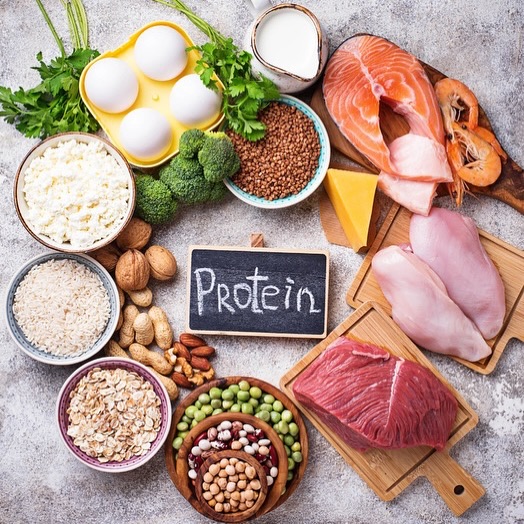As we age, our bodies undergo numerous changes, and nutrition plays a crucial role in maintaining health and vitality. For women over 50, focusing on functional and longevity-driven nutrition can enhance not only physical health but also overall well-being. This guide explores the best dietary choices to support your body through its natural transitions, while promoting energy, strength, and longevity.
Why Nutrition Matters After 50
After the age of 50, women experience a range of hormonal, metabolic, and physiological changes. These changes can affect muscle mass, bone density, metabolism, and even skin health. Proper nutrition helps address these changes, reducing the risk of chronic diseases and supporting long-term health. A balanced diet with an emphasis on functional foods can keep you feeling your best and help prevent age-related health issues.
Key Nutrients for Women Over 50
- Protein – Preserve Muscle and Metabolism
As we age, we tend to lose muscle mass, a condition called sarcopenia. To counteract this, it’s essential to include adequate protein in your diet. Protein supports muscle repair, helps maintain strength, and keeps metabolism high.
- Good Sources: Lean meats, poultry, fish, tofu, legumes, eggs, and dairy.
- Calcium and Vitamin D – Support Bone Health
Osteoporosis becomes a concern as women approach menopause due to decreased estrogen levels, which can weaken bones. Calcium, combined with vitamin D, plays a key role in maintaining strong bones and preventing fractures.
- Good Sources: Dairy products, fortified plant-based milks, leafy green vegetables, fatty fish, and sunlight for vitamin D.
- Omega-3 Fatty Acids – Improve Heart Health and Reduce Inflammation
Omega-3s have been shown to reduce inflammation, lower the risk of heart disease, and support brain health. As we age, inflammation can contribute to joint pain and other health issues, making omega-3s essential for longevity.
- Good Sources: Fatty fish (salmon, mackerel, sardines), flaxseeds, chia seeds, walnuts, and algae-based supplements.
- Fiber – Promote Digestive Health and Control Blood Sugar
Digestive issues become more common with age, and fiber is key to promoting regular bowel movements and reducing the risk of gastrointestinal diseases. Additionally, fiber helps manage blood sugar levels, which can fluctuate during menopause.
- Good Sources: Whole grains, fruits, vegetables, legumes, nuts, and seeds.
- Magnesium – Support Muscle and Nerve Function
Magnesium is critical for muscle function, bone health, and managing stress. It also plays a role in regulating blood pressure, which is important as cardiovascular risks increase with age.
- Good Sources: Leafy green vegetables, nuts, seeds, whole grains, and legumes.
- Antioxidants – Combat Oxidative Stress and Aging
Antioxidants protect cells from damage caused by free radicals, which contribute to aging and chronic diseases. Including a variety of colorful fruits and vegetables in your diet can help fight oxidative stress and keep your skin, heart, and brain healthy.
- Good Sources: Berries, leafy greens, tomatoes, nuts, and dark chocolate.
Top Longevity-Focused Foods for Women Over 50
In addition to the above nutrients, certain foods are particularly beneficial for promoting longevity and overall health:
- Leafy Greens: Packed with fiber, vitamins, and minerals, leafy greens like spinach, kale, and Swiss chard are excellent choices for women over 50. They provide key nutrients for bone health, heart health, and digestion.
- Berries: Rich in antioxidants, berries like blueberries, raspberries, and strawberries help protect against inflammation, improve brain health, and support the immune system.
- Cruciferous Vegetables: Broccoli, cauliflower, and Brussels sprouts are rich in fiber and phytochemicals that may help lower cancer risk and support detoxification.
- Nuts and Seeds: Walnuts, almonds, and chia seeds provide healthy fats, fiber, and protein, making them a great option for boosting heart health and keeping you full longer.
- Fermented Foods: Yogurt, kefir, kimchi, and sauerkraut support gut health by providing beneficial probiotics, which can improve digestion and immune function.
Practical Tips for Staying Healthy and Active
- Eat a Balanced Diet: Focus on whole foods, with an emphasis on fruits, vegetables, lean proteins, and healthy fats. Minimize processed foods, added sugars, and excess sodium, which can contribute to inflammation and other health issues.
- Stay Hydrated: Proper hydration is essential for maintaining healthy skin, digestion, and overall function. Aim for at least 8 cups of water a day, more if you’re physically active.
- Mind Portion Sizes: As metabolism slows with age, it’s important to watch portion sizes. Eating smaller, more frequent meals can help keep energy levels stable and prevent overeating.
- Exercise Regularly: Combine strength training, flexibility exercises, and aerobic activity to maintain muscle mass, improve bone density, and support cardiovascular health.
- Prioritize Sleep: Quality sleep is vital for cellular repair and overall health. Aim for 7-9 hours per night to help manage stress, regulate hormones, and support immune function.
Final Thoughts
Functional and longevity-focused nutrition is about fueling your body with the right nutrients to support healthy aging. For women over 50, a diet rich in protein, calcium, fiber, healthy fats, and antioxidants can promote vitality, enhance well-being, and reduce the risk of chronic diseases. By making mindful food choices and adopting a balanced lifestyle, you can take charge of your health and age gracefully, with energy and confidence.
Remember, it’s never too late to invest in your health through nutrition—small changes can have a big impact on your long-term well-being.












